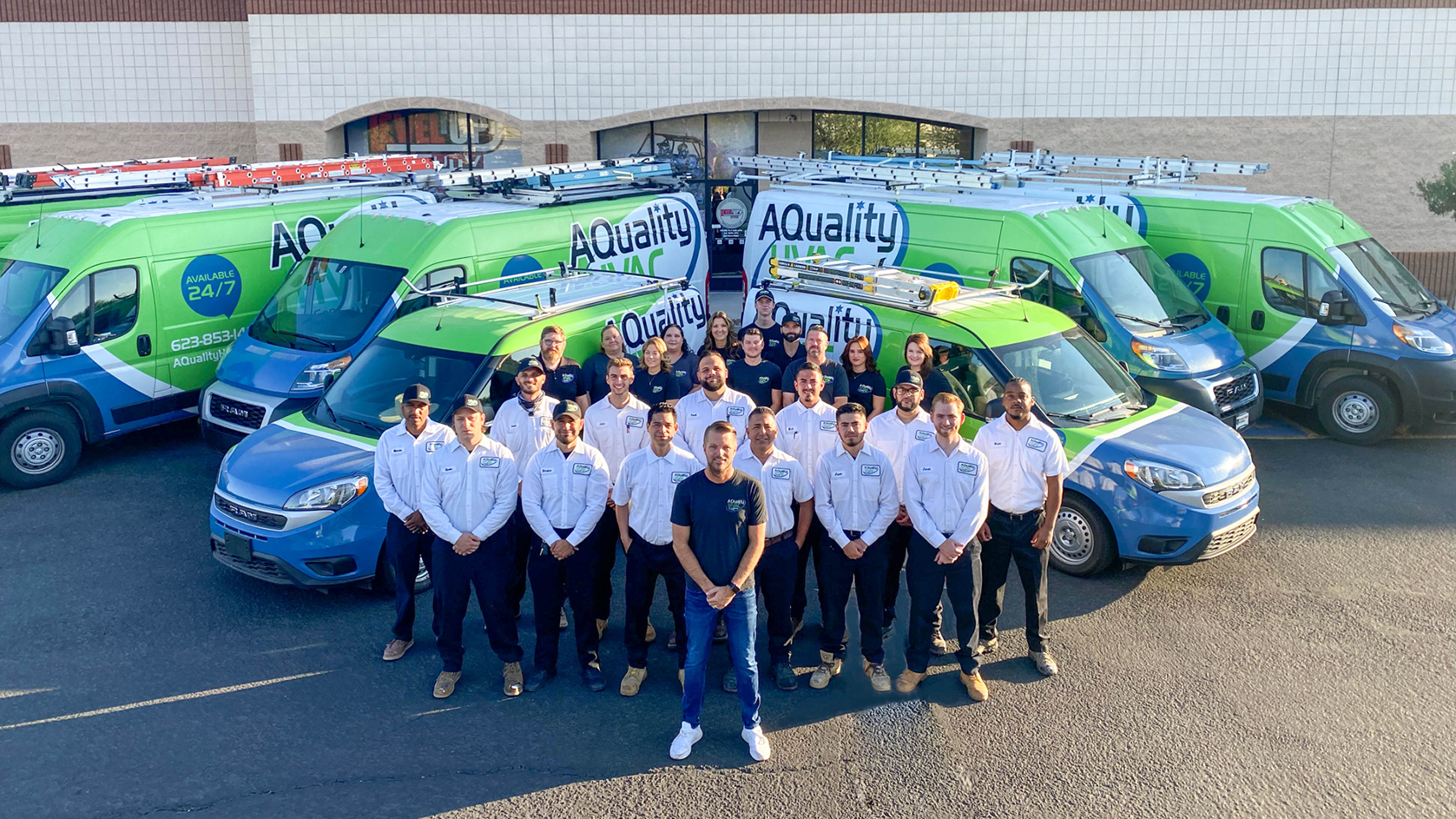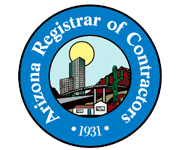The Noisy AC That Passes Inspection: What Technicians Don’t Always Hear
There’s something strange about how noise works in a home. You’ll hear every little click, hum, and rattle when you’re trying to relax, but the moment someone else shows up, especially a technician, your air conditioner decides to behave. Sound familiar?

Plenty of folks around Goodyear and the Greater Phoenix area deal with this. Their AC sounds weird, too loud, too frequent, too sharp, but when a pro shows up to check things out, everything sounds normal. The system runs, the air feels cool, and the inspection gets a green light. So they leave. And that night? The same noise is back like nothing happened.
If this sounds like you, you’re not imagining things. And no, you’re not being “too sensitive” to sound. Your AC really is talking. The question is: what is it trying to say?
Let’s unpack why your noisy AC might be passing inspections and why that doesn’t always mean everything’s fine.
Why That Rattle or Hum Matters More Than You Think
It’s easy to ignore an odd sound if the air is still blowing cold. But when an air conditioner starts making unfamiliar noises, clicks, hisses, banging, grinding, it’s often the first sign something is off. It could be a loose screw, worn-out bearings, a fan blade brushing something it shouldn’t, or a refrigerant issue. Many of these are signs of wear that can lead to expensive breakdowns later.
That annoying hum or screech might not affect performance today, but left alone, it might be the reason your AC dies on the hottest day of the year. That’s why listening to your system is just as important as looking at it.
Why Some AC Noises Are Missed During a Technician Visit
You might wonder, “If I can hear it, why didn’t the technician notice?” It’s a fair question, and there are a few reasons:
1. Timing
Many AC noises are intermittent. Some only show up after the unit has been running for a while. Others might kick in when outdoor temperatures reach a certain point or when indoor humidity gets high. If the tech arrives during a “quiet phase,” they might not hear a thing.
2. Familiarity Bias
Technicians work around HVAC systems all day. Their ears are used to hearing motors, fans, compressors, and airflow noise. Something that sounds unusual to you might sound pretty standard to them, especially if the sound doesn’t interrupt function.
3. Environment Differences
In a quiet house, you might hear every subtle whine and knock. But when a tech is outside near the condenser or standing by the return vent with tools and background noise, those same sounds may blend in. The context is different.
4. Short Inspection Windows
If the inspection is quick and focused only on performance metrics, airflow, refrigerant levels, filter condition, there may not be enough time to observe how the system behaves under load or during long cycles.
So no, your ears aren’t broken. The noise just didn’t show up when it counted.
The Types of AC Noises You Should Never Ignore
Just because your system passed inspection doesn’t mean it’s not signaling a deeper issue. Let’s talk about some common sounds that deserve attention:
1. Banging or Clanking
Usually a sign that something’s come loose inside, often a fan blade or motor mount. This could damage the compressor if ignored.
2. Buzzing
This might mean electrical trouble or a failing capacitor. Sometimes it’s just a loose part vibrating. But in any case, it’s a red flag.
3. Screeching or Squealing
Could be worn-out belts or bearings. These often start soft and gradually get louder. Catching them early can prevent motor failure.
4. Hissing
Often mistaken for air movement, a hissing sound can actually be refrigerant leaking. That’s a big deal, not just for your system, but also for your health and energy bill.
5. Clicking
A single click when turning on/off is normal. But constant clicking might point to electrical issues in the thermostat or control board.
If you’re hearing any of these repeatedly, even if the system’s working fine, it’s worth investigating. Noise is the one thing your AC can’t hide.
“It Passed Inspection, So Why Is It Still Making That Noise?”
Here’s a hard truth: inspections aren’t foolproof. They’re often checklists built around efficiency, refrigerant levels, and airflow, not always on how the system sounds in your home over time.
Also, inspections aren’t magic. They provide a snapshot of how your system’s performing at that moment, in that condition. But many problems don’t show up until something heats up, shakes loose, or goes under pressure.
You live in your house. You hear your AC every day. If something sounds off, even if it “passed inspection,” trust your instincts.
How to Catch the Noise Before It Gets Worse
The best way to catch an issue is to document it, just like you’d record a noise in your car for a mechanic.
Here’s how to help your tech hear what you hear:
- Record the Sound: Use your phone to capture the noise when it happens. Make note of what time it occurred and what the AC was doing.
- Describe the Pattern: Does it only happen after it’s been running for 20 minutes? Does it only happen at night or on super-hot days?
- Be Clear About Frequency: Is this a once-a-day thing or every time the system kicks on?
Good techs will appreciate this kind of info. It helps them dig deeper, beyond the standard checklist, and find the real cause.
Environmental Conditions Matter in Greater Phoenix
Let’s talk local for a second. AC units in the Greater Phoenix area work hard. Really hard. Long run times in extreme heat wear parts out faster. Vibration gets more intense. Dust and debris from dry winds clog things up. And since these systems are often outdoors, they’re exposed to everything from monsoon storms to wildlife.
All this contributes to wear, and that wear shows up first in sound before it shows up in performance.
When It’s Not Just the Sound That’s a Problem
Some noises aren’t just annoying, they’re dangerous.
- Electrical buzzing could lead to short circuits or fire hazards.
- Refrigerant hissing could point to leaks that reduce efficiency and cooling.
- Loud banging could damage the compressor, one of the most expensive parts to replace.
Even if your unit is still cooling the house, don’t wait for it to stop working completely. Fixing it early almost always costs less than waiting until it fails.
If your AC sounds off, even when it seems to be working fine, don’t ignore it. The earlier you catch the problem, the better. Call A Quality HVAC and Plumbing Services LLC at 623-853-1482 today. We’re here to help homes in Goodyear and the Greater Phoenix area stay cool, quiet, and comfortable.






